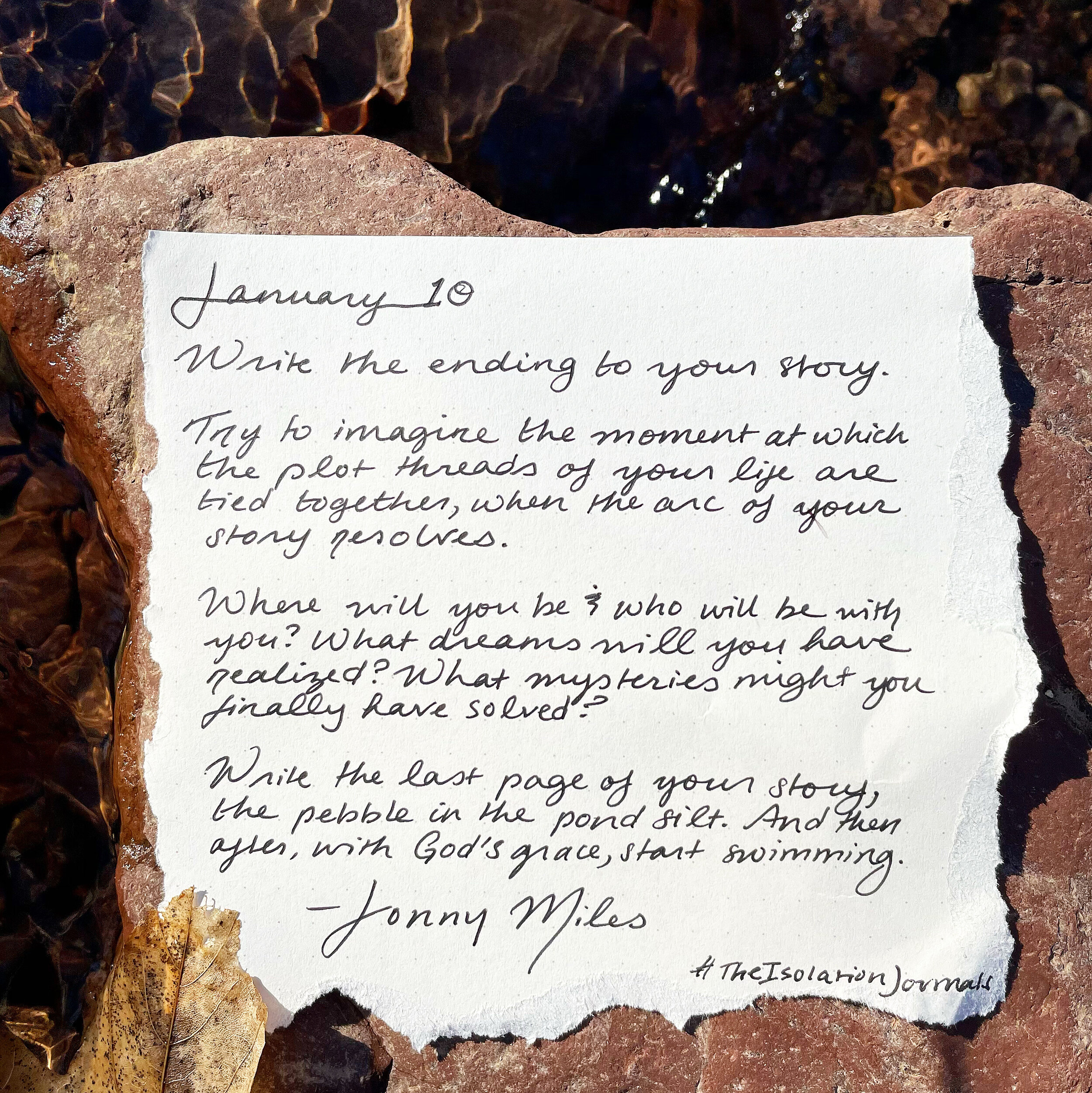134. The Last Page – Jonathan Miles
I’ve never written a novel or story without first knowing the ending.
I’ve never written a novel or story without first knowing the ending. This seems to be an uncommon method, at least among writers of my acquaintance, but not unheard-of. I think it was the novelist Richard Russo who likened his writing process to throwing a pebble into a pond—the pebble being the ending—and then swimming around to find it. One of my heroes, Katherine Anne Porter, always wrote her last page first and then worked towards it. “I know where I’m going,” she once told an interviewer. “How I get there is God’s grace.”
– Jonathan Miles


